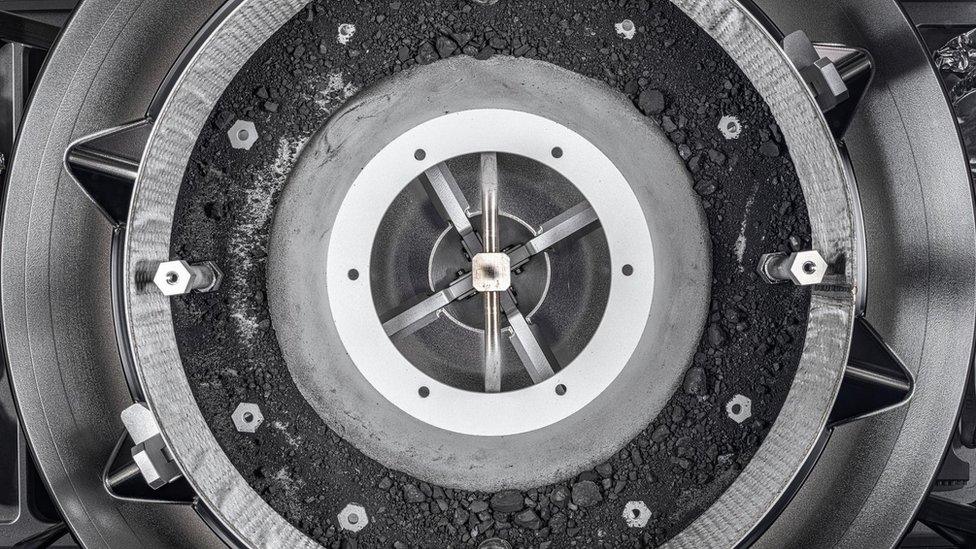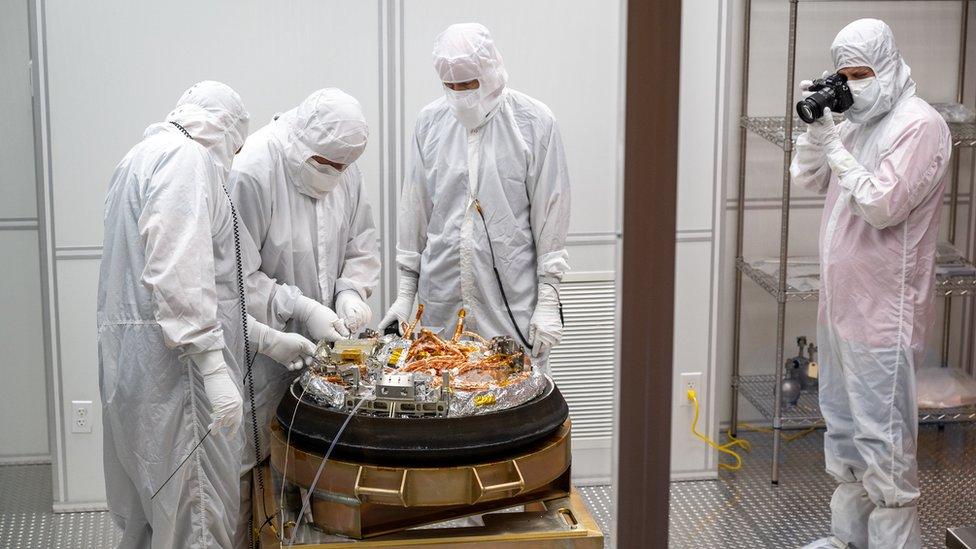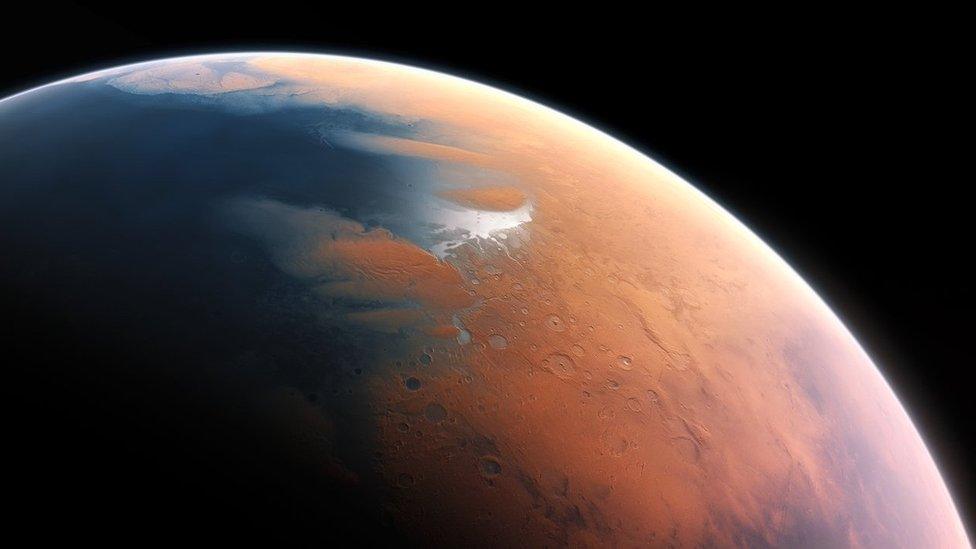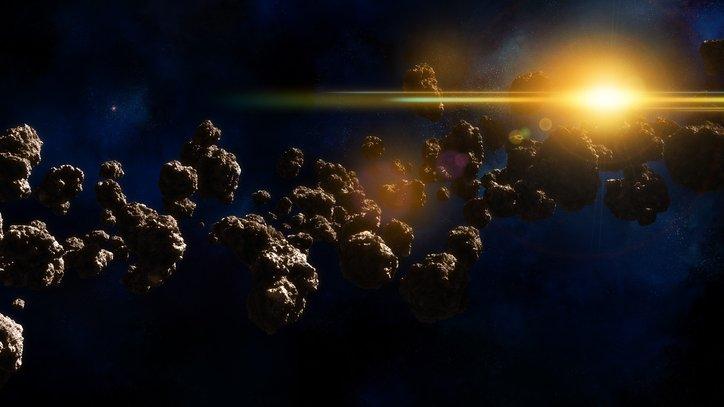Bennu asteroid could be from an "ocean world" researchers say
- Published
- comments

Researchers studying an ancient asteroid called Bennu have made an incredible discovery about its possible origins.
Around 250g of rock, collected and brought back to Earth from the asteroid hundreds of millions of miles away, is being studied by scientists across the world.
Scientists believe that asteroids like Bennu could tell us more about the origins of our planet and where Earth's water first came from.
Now a team from the University of Arizona, studying a very small sample of Bennu's rock, believe that the asteroid may have first come from an ocean world.
Watch the moment Nasa's Osiris-Rex capsule lands back on Earth (from September 2023)
Why was asteroid Bennu chosen?
Bennu is an ancient asteroid that scientists believe has existed since the beginnings of our solar system.
Nasa decided to collect a sample from the asteroid to help scientists understand more about how our solar system was first formed.
It's only a third of a mile (500 metres) wide but rotates slower than other smaller asteroids, which is why it was chosen for this mission.

It took seven years for Nasa's OSIRIS-REx spacecraft to reach Bennu, collect a sample and then return to Earth.
The sample was then split into parts and sent across the world to scientists in different countries for testing.
Asteroids are big chunks of rock which float though space and orbit the Sun.
They are much smaller than planets, and can vary in size.
There are lots of asteroids in our solar system, and most of them are in the main asteroid belt, which floats between Mars and Jupiter.
Why is Bennu important?
First examinations of the sample found high amounts of carbon and water.
Both are important substances that exist on Earth and can be the foundation for life.
"The OSIRIS-REx sample is the biggest carbon-rich asteroid sample ever delivered to Earth and will help scientists investigate the origins of life on our own planet for generations to come," said NASA Administrator Bill Nelson.
Some scientists believe that asteroids like Bennu could even be responsible for life on Earth.

The sample of rock had to be carefully removed from the capsule that brought it home
What did the University of Arizona find?
The University of Arizona is currently examining a tiny sample of Bennu's rock - around 200 milligrams in total.
But despite the seemingly small size, there is plenty for the researchers to study.
One of their most important findings so far is a substance called phosphate.

Research suggests that planets in our solar system like Mars once had oceans of water on their surface - Nasa reckons that Mars has lost 87% of the water it had billions of years ago
Why is the research exciting?
High amounts of phosphate are usually found on planets with a lot of water on their surface or in the atmosphere. These planets are often called ocean worlds.
This is exciting as ocean worlds have some similarities to Earth, which is itself an ocean world.
Principal investigator for OSIRIS-REx Dante Lauretta said there could be a chance that Bennu is "a fragment of an ancient ocean world".
But it seems that this discovery is just the tip of the iceberg!
Many more findings will be presented at the 55th Lunar and Planetary Science Conference in Texas later this year.
"Starting in March that's all going to be released out to the world. So the team is working furiously," said Professor Lauretta.
- Published12 October 2023

- Published24 September 2023

- Published21 March 2019
